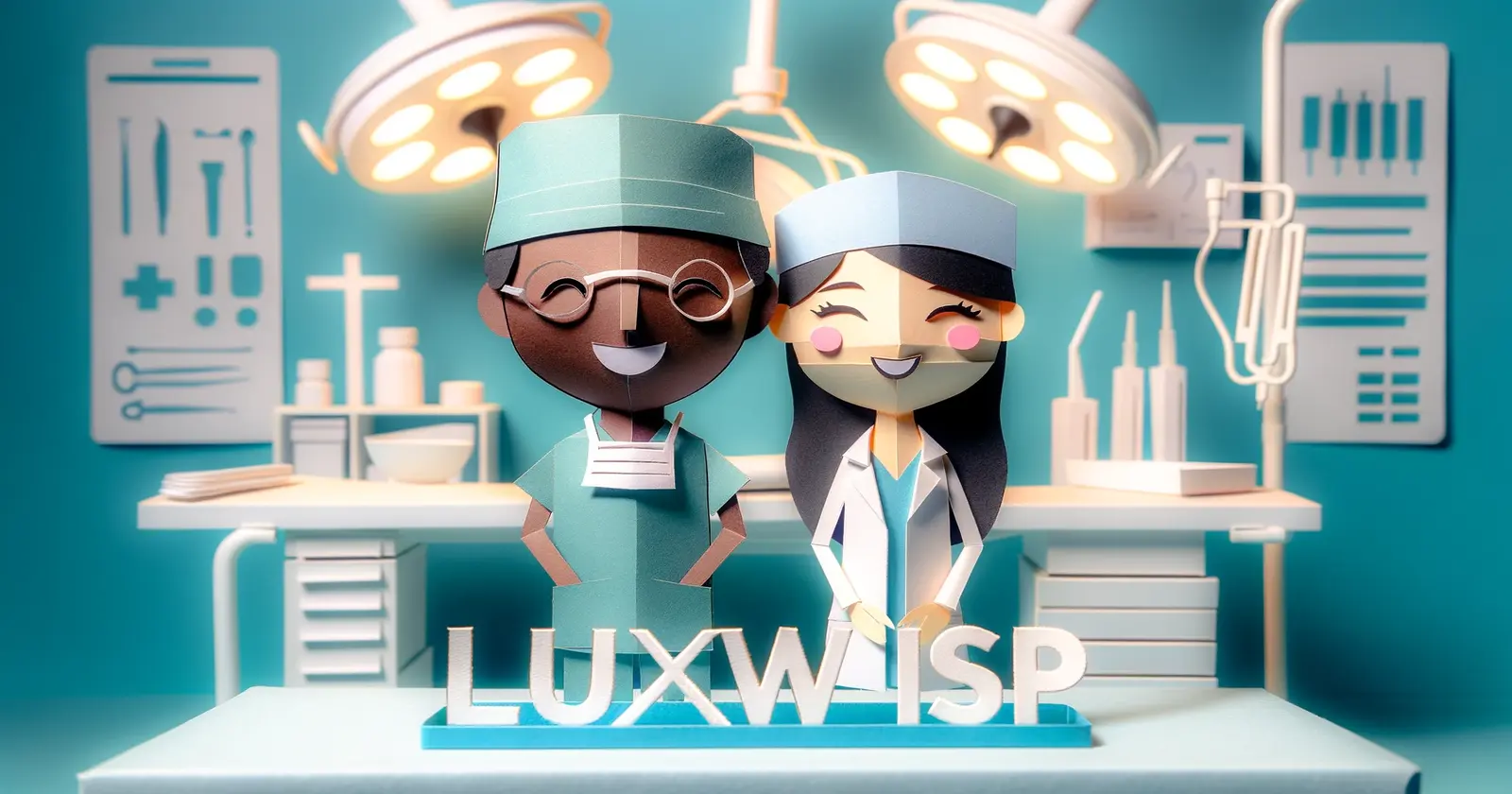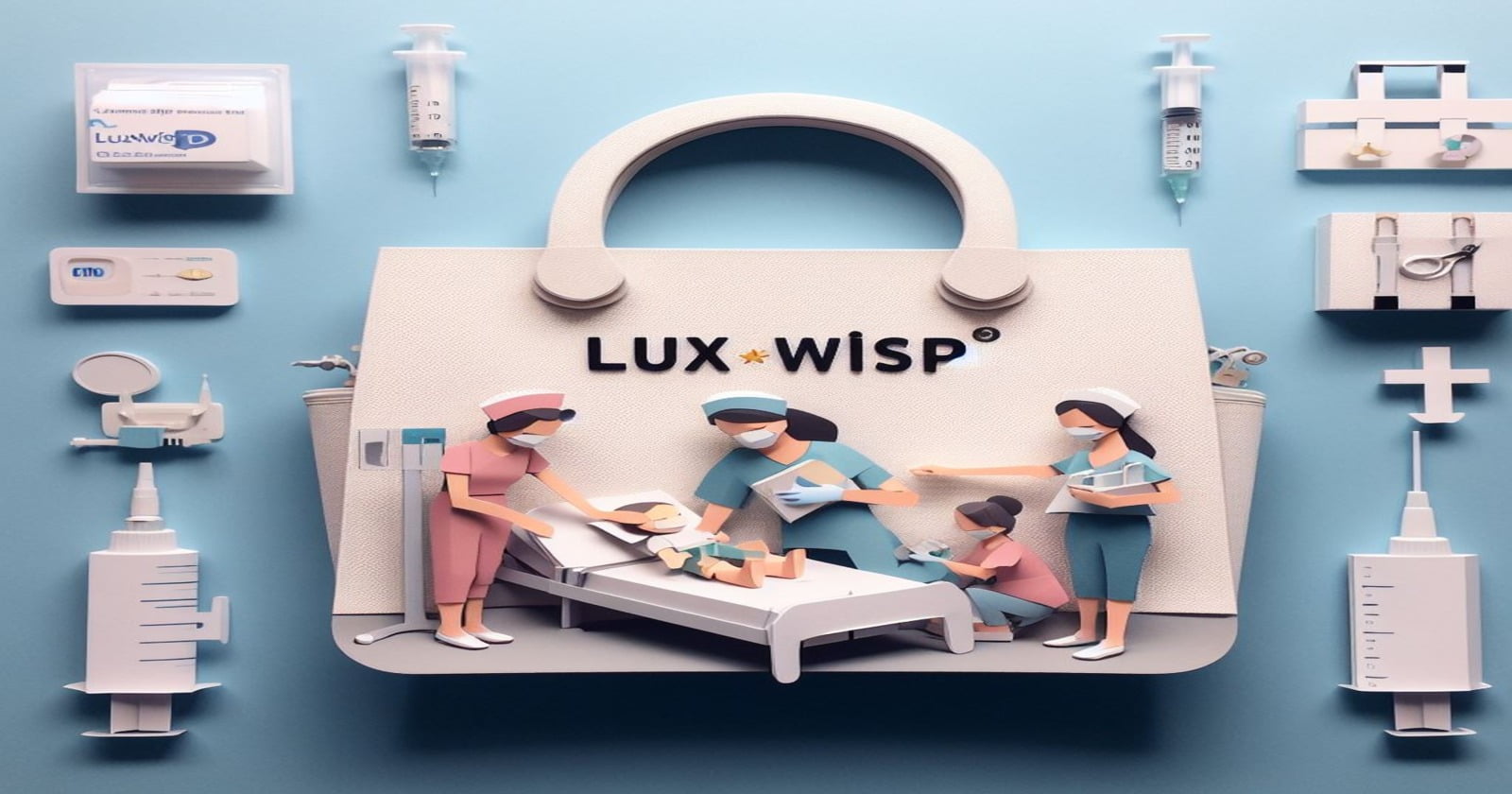The pros of being a cardiothoracic surgeon are significant impacts on patient health, the gratification of seeing immediate results of work, professional prestige and respect, financial rewards, and the opportunity to work with cutting-edge technology and techniques. This career also offers diverse case experiences, leadership in building a team, global demand for skills, mentorship opportunities, and personal growth and resilience. Cardiothoracic surgeons contribute to public health, experience a strong sense of achievement, enjoy lifelong learning, and benefit from job security.
The cons of being a cardiothoracic surgeon include long and irregular working hours, a high-pressure work environment, the risk of malpractice suits, and the intensive length of training required. There is also a high patient mortality rate, challenging patient interactions, the stress of holding lives in one’s hands, and a constant need for precision and focus. This career can limit personal life, pose physical strain, require ongoing education, and have an emotional impact due to surgical outcomes. Additionally, there are high costs of medical education, workplace hazards, and limited flexibility in work schedules, all of which can be significant drawbacks of this profession.
Takeaways:
- High level of professional prestige and respect
- Financial security and opportunities for substantial investments
- Opportunities for career advancement in leadership positions
- Stressful work-life balance and emotional toll of long, intense operations
| Pros of Being a Cardiothoracic Surgeon | Cons of Being a Cardiothoracic Surgeon |
|---|---|
| High Impact on Patient Health | Long and Irregular Hours |
| Seeing Immediate Results of Work | High-Pressure Work Environment |
| Professional Prestige and Respect | Risk of Malpractice Suits |
| Financial Reward | Intensive and Lengthy Training |
| Cutting-Edge Technology and Techniques | High Patient Mortality Rate |
| Opportunity for Research and Innovation | Challenging Patient Interactions |
| Diverse Range of Cases | Stress of Holding Lives in Hands |
| Building a Team | Constant Need for Precision and Focus |
| Global Demand for Skills | Limited Time for Personal Life |
| Mentorship Opportunities | Risk of Physical Strain |
| Personal Growth and Resilience | Need for Ongoing Education |
| Contribution to Public Health | Emotional Impact of Surgical Outcomes |
| Sense of Achievement | High Costs of Medical Education |
| Lifelong Learning | Workplace Hazards |
| Job Security | Limited Flexibility in Work Schedule |
Pros of Being a Cardiothoracic Surgeon
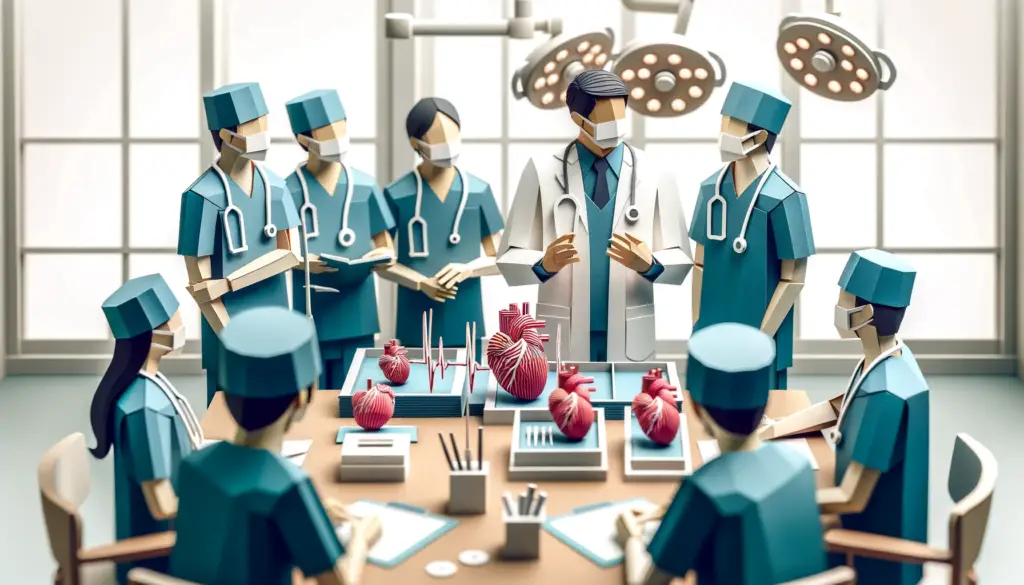
- High Impact on Patient Health: Cardiothoracic surgeons have a profound impact on their patients’ lives. They often perform life-saving procedures, such as heart bypasses and lung transplants, which can drastically improve or even save a patient’s life. This ability to make such a significant difference is incredibly rewarding and fulfilling.
- Seeing Immediate Results of Work: One of the most gratifying aspects of cardiothoracic surgery is the ability to see the immediate results of one’s efforts. For example, a patient’s heart function may improve noticeably right after a successful surgery. This immediate feedback can be extremely satisfying and motivating.
- Professional Prestige and Respect: Cardiothoracic surgeons are highly respected in the medical community due to the complexity and importance of their work. They are often viewed as leaders in the field of medicine, which can lead to opportunities for professional advancement and recognition.
- Financial Reward: Due to the high level of skill and expertise required, cardiothoracic surgeons are typically well-compensated. This financial reward can provide a comfortable lifestyle and the ability to pay off medical school debts more quickly compared to other medical specialties.
- Cutting-Edge Technology and Techniques: Cardiothoracic surgery often involves the use of the latest medical technologies and innovative surgical techniques. Surgeons in this field have the opportunity to work with state-of-the-art equipment and contribute to advancements in medical science.
- Opportunity for Research and Innovation: Many cardiothoracic surgeons are involved in research, leading to new surgical techniques, better patient outcomes, and advancements in medical knowledge. This aspect of the job can be intellectually stimulating and allows surgeons to leave a lasting impact on the field.
- Diverse Range of Cases: Cardiothoracic surgery encompasses a wide variety of procedures, from coronary artery bypass grafting to heart transplants. This diversity means that surgeons are continually challenged and engaged in their work.
- Building a Team: Cardiothoracic surgeons often lead a team of medical professionals, fostering a sense of camaraderie and teamwork. This leadership role can be highly satisfying and helps in developing strong interpersonal and management skills.
- Global Demand for Skills: The skills of a cardiothoracic surgeon are in demand worldwide, offering opportunities for international work and collaboration. This global perspective can be professionally enriching and personally fulfilling.
- Mentorship Opportunities: Experienced cardiothoracic surgeons have the chance to mentor younger surgeons and medical students, passing on their knowledge and expertise. This mentorship can be a rewarding way to give back to the medical community.
- Personal Growth and Resilience: The challenges of being a cardiothoracic surgeon can lead to significant personal growth. Surgeons often develop a high level of resilience, problem-solving skills, and the ability to perform well under pressure.
- Contribution to Public Health: Cardiothoracic surgeons contribute significantly to public health by treating prevalent conditions like heart disease and lung cancer. Their work has a ripple effect, improving the health standards of the community.
- Sense of Achievement: Completing the lengthy and rigorous training required to become a cardiothoracic surgeon is an achievement in itself. This sense of accomplishment can be a significant source of personal pride and motivation.
- Lifelong Learning: The field of cardiothoracic surgery is constantly evolving, which encourages continuous learning and adaptation. Surgeons must stay abreast of the latest developments, ensuring they are lifelong learners.
- Job Security: Due to the specialized nature of their skills and the ongoing need for their services, cardiothoracic surgeons often enjoy a high level of job security.
Cons of Being a Cardiothoracic Surgeon
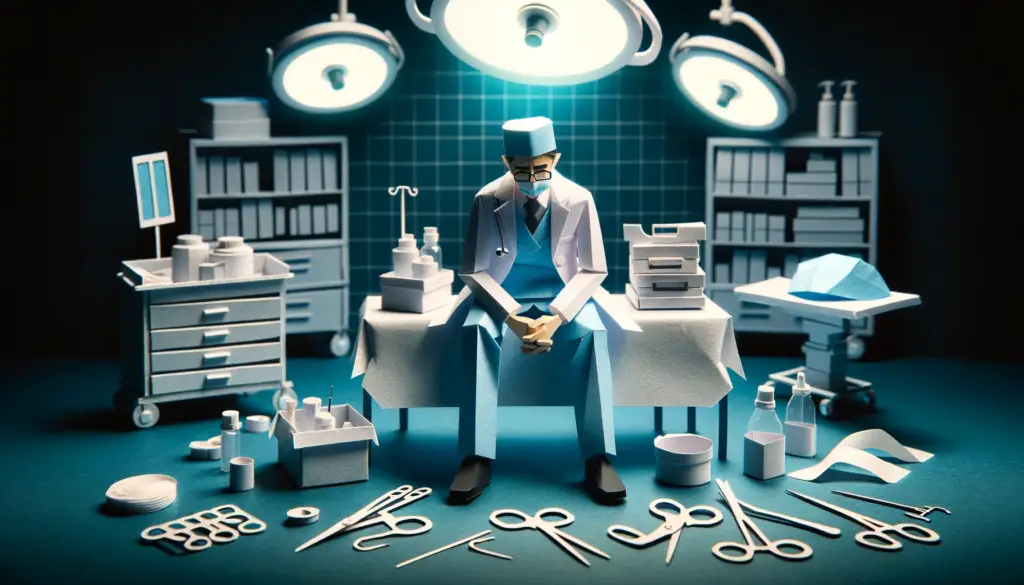
- Long and Irregular Hours: Cardiothoracic surgeons often work more than 60 hours a week, with unpredictable schedules. The nature of surgical procedures, which can take eight hours or more, contributes to these long hours, impacting work-life balance and personal time.
- High-Pressure Work Environment: The work of a cardiothoracic surgeon is high-stakes, involving critical decisions and complex procedures. This constant pressure can be mentally and emotionally taxing, leading to high stress levels.
- Risk of Malpractice Suits: Given the complexity and risks associated with cardiothoracic surgery, there is a higher risk of malpractice suits compared to other medical specialties. This risk can lead to increased stress and the need for comprehensive malpractice insurance.
- Intensive and Lengthy Training: The path to becoming a cardiothoracic surgeon is long, often taking 7 to 10 years after medical school. This extended period of training can be exhausting and requires significant personal and financial investment.
- High Patient Mortality Rate: Cardiothoracic surgeons often deal with critically ill patients, leading to a higher patient mortality rate compared to other specialties. This aspect of the job can be emotionally challenging and may lead to feelings of sadness or frustration.
- Challenging Patient Interactions: Surgeons in this field sometimes face difficult conversations with patients and families, particularly when discussing high-risk procedures or delivering bad news. These interactions can be emotionally draining.
- Stress of Holding Lives in Hands: The responsibility of holding a patient’s life in their hands during surgery is immense. This level of responsibility can be a heavy burden to carry, contributing to stress and anxiety.
- Constant Need for Precision and Focus: Cardiothoracic surgery requires extreme precision and unwavering focus. The need to maintain these high standards throughout long surgeries can be physically and mentally exhausting.
- Limited Time for Personal Life: The demanding nature of the job often leaves little time for a personal life. Surgeons may struggle to balance their professional responsibilities with family, social, and leisure activities.
- Risk of Physical Strain: Performing lengthy surgeries can lead to physical strain, including back pain, neck pain, and fatigue. These physical demands can impact a surgeon’s long-term health and well-being.
- Need for Ongoing Education: Cardiothoracic surgeons must continuously update their knowledge and skills to stay current with medical advancements. This requirement for ongoing education can be time-consuming and sometimes overwhelming.
- Emotional Impact of Surgical Outcomes: The outcome of a surgery, whether successful or not, can have a significant emotional impact on the surgeon. Dealing with complications or the loss of a patient can be particularly challenging.
- High Costs of Medical Education: The expense of medical school and specialized training in cardiothoracic surgery can be substantial, leading to significant student debt that can take years to repay.
- Workplace Hazards: Surgeons are exposed to various workplace hazards, such as radiation, infectious diseases, and chemical substances. These risks require strict adherence to safety protocols.
- Limited Flexibility in Work Schedule: The nature of cardiothoracic surgery often requires surgeons to be available for emergencies and to work at irregular times. This lack of flexibility can be challenging, especially for those with families or other personal commitments.
Life-Saving Impact and Prestige
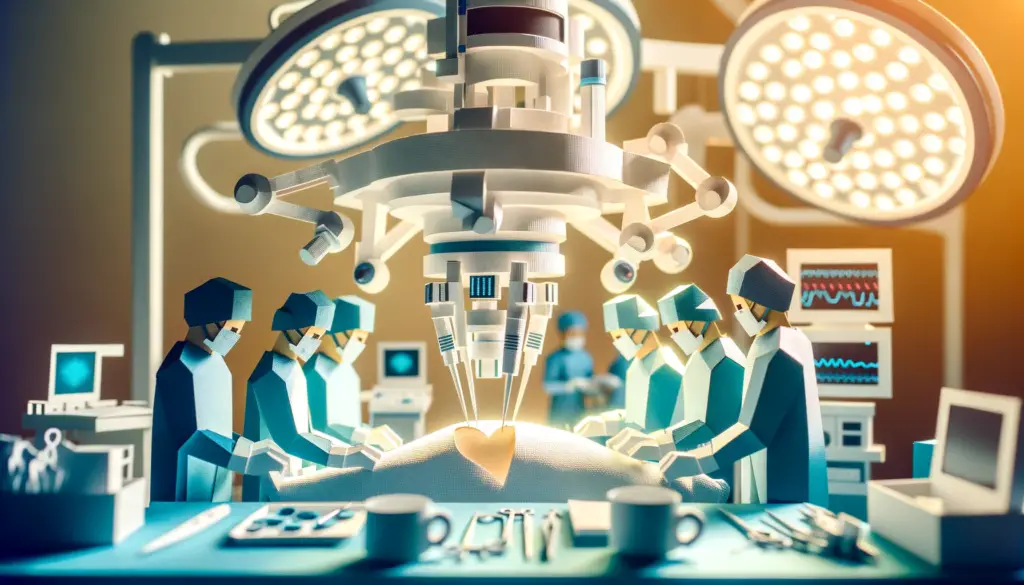
Regularly, cardiothoracic surgeons experience the profound satisfaction of saving lives and achieving a high level of professional prestige. The nature of their work involves intricate procedures to treat conditions of the heart, lungs, esophagus, and other organs in the chest. This high-stakes environment allows them to directly impact and improve the quality of life for their patients.
The ability to perform life-saving surgeries, such as coronary artery bypasses, heart transplants, and lung resections, provides an immense sense of fulfillment and purpose. Furthermore, the prestige associated with cardiothoracic surgery is unparalleled. The level of expertise required, the complexity of the procedures, and the life-or-death situations they handle contribute to the immense respect and admiration they receive from their peers, patients, and the broader medical community.
The dedication and skill required to become a cardiothoracic surgeon further elevate their standing in the medical field. This combination of life-saving impact and professional prestige makes cardiothoracic surgery an immensely rewarding career path for those with the passion and dedication to pursue it.
Financial Rewards and Advancement
Cardiothoracic surgeons’ financial rewards and opportunities for advancement present significant benefits for those pursuing this career path. With an average annual salary exceeding $400,000, cardiothoracic surgeons are among the highest-earning professionals in the medical field. This level of compensation not only provides financial security but also opens doors for substantial investments and future financial growth. The stability and high earning potential of this profession offer a solid foundation for building personal wealth and ensuring a comfortable lifestyle for the individual and their family.
Moreover, career advancement in cardiothoracic surgery is not solely limited to clinical practice. Leadership positions in hospitals, academic institutions, and professional societies are common career progression paths for experienced cardiothoracic surgeons. Recognition for expertise and significant contributions to the field can further propel career advancement, creating opportunities for professional growth and increased visibility within the medical community.
These factors make cardiothoracic surgery an appealing career choice for those seeking both financial prosperity and opportunities for advancement.
Cutting-Edge Technology and Research

The utilization of cutting-edge technology and participation in groundbreaking research contribute significantly to a cardiothoracic surgeon’s advancement and impact in the field of medicine. Cardiothoracic surgeons have the opportunity to work with state-of-the-art technology and be at the forefront of medical innovation. Their involvement in research allows them to contribute to the development of new procedures and treatments, pushing the boundaries of what’s possible in medicine, ultimately enhancing surgical outcomes and improving patient care.
| Advantages of Technology and Research for Cardiothoracic Surgeons | Description | Impact |
|---|---|---|
| Access to state-of-the-art technology | Cardiothoracic surgeons can utilize advanced surgical tools and equipment to perform complex procedures with precision. | Enhanced surgical precision and improved patient outcomes |
| Contribution to groundbreaking research | Participation in research allows cardiothoracic surgeons to contribute to the development of new procedures and treatments, leading to advancements in the field. | Influence on the evolution of cardiothoracic medicine and patient care |
| Collaboration opportunities | Engaging in research fosters collaboration with other medical professionals, promoting knowledge exchange and multidisciplinary approaches. | Enhanced learning and innovative problem-solving |
| Impact on patient care | By leveraging cutting-edge technology and research, cardiothoracic surgeons can offer patients advanced treatment options and improved care. | Better patient outcomes and quality of life |
The integration of cutting-edge technology and participation in pioneering research not only enhances a cardiothoracic surgeon’s skills and knowledge but also has a profound impact on the field of cardiothoracic medicine as a whole.
International Opportunities and Travel
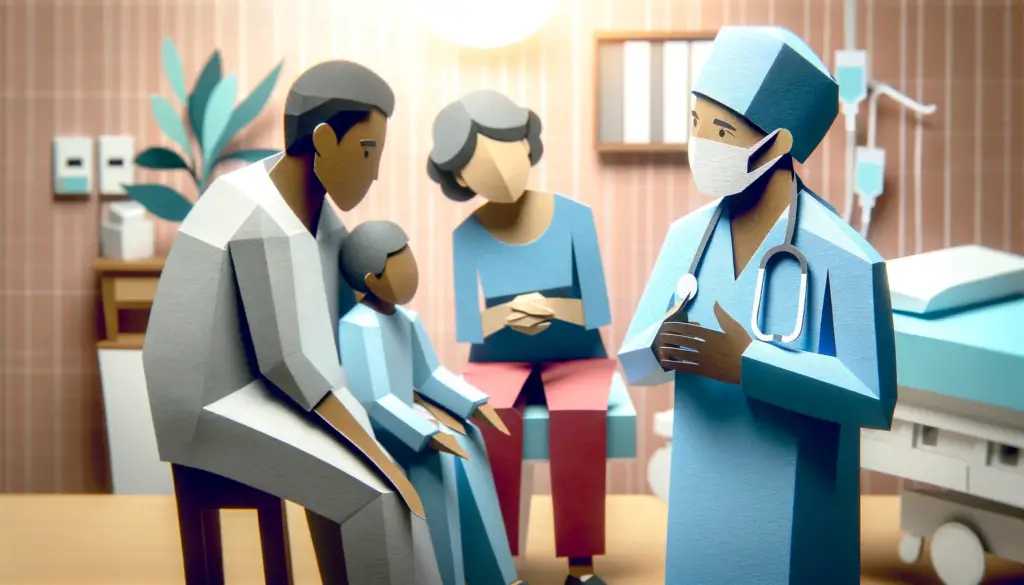
The international opportunities and travel aspects of being a cardiothoracic surgeon bring forth a multitude of enriching experiences.
Global surgical missions provide the chance to make a meaningful impact in underserved communities, while cultural exchange experiences offer the opportunity to learn from diverse healthcare systems.
These experiences not only broaden the perspective of cardiothoracic surgeons but also contribute to the global advancement of cardiothoracic surgery.
Global Surgical Missions
Participating in global surgical missions provides cardiothoracic surgeons with unique opportunities for international collaboration and professional growth. This experience evokes a range of emotions, including:
- Fulfillment: Contributing surgical expertise to underserved communities and making a meaningful impact on a global scale brings a deep sense of fulfillment.
- Inspiration: Collaborating with experts from different parts of the world and witnessing diverse healthcare practices can inspire new ideas and approaches to cardiothoracic surgery.
- Gratitude: The opportunity to travel to different locations, experience cultural exchange, and improve patient care in underserved areas fosters a sense of gratitude for the privilege to make a positive difference.
- Empathy: Exposure to different healthcare systems and witnessing varied patient experiences fosters empathy and a broader understanding of the global impact of cardiothoracic surgery.
Cultural Exchange Experiences
Continuing from the previous discussion on global surgical missions, cardiothoracic surgeons have numerous cultural exchange experiences and international opportunities that broaden their perspectives and advance their professional growth.
These experiences offer a chance to work and collaborate with experts from around the globe, participate in international conferences, fellowships, and research collaborations, and gain exposure to different healthcare systems and practices.
Engaging in cultural exchange provides cardiothoracic surgeons with a global impact in advancing their field, broadening their horizons, and gaining diverse perspectives.
Lengthy Education and Training

Embarking on the path to becoming a cardiothoracic surgeon entails committing to a lengthy and rigorous educational and training process. This journey is characterized by extensive academic pursuits, specialized training, and continuous learning, which can be both challenging and rewarding.
- Intense dedication: The educational journey demands unwavering commitment and sacrifice of personal time and leisure activities.
- Physical and mental endurance: The rigorous training and demanding schedules can take a toll on the physical and mental well-being of aspiring cardiothoracic surgeons.
- Financial burden: The prolonged educational pathway often incurs substantial financial costs, including tuition fees, living expenses, and educational materials.
- Delayed career establishment: The prolonged duration of education and training postpones the establishment of a stable professional career and financial independence, potentially leading to a sense of delayed gratification and accomplishment.
These aspects of the lengthy education and training process may evoke feelings of determination, resilience, and anticipation among individuals aspiring to pursue a career in cardiothoracic surgery.
High-Pressure Environment and Demanding Lifestyle
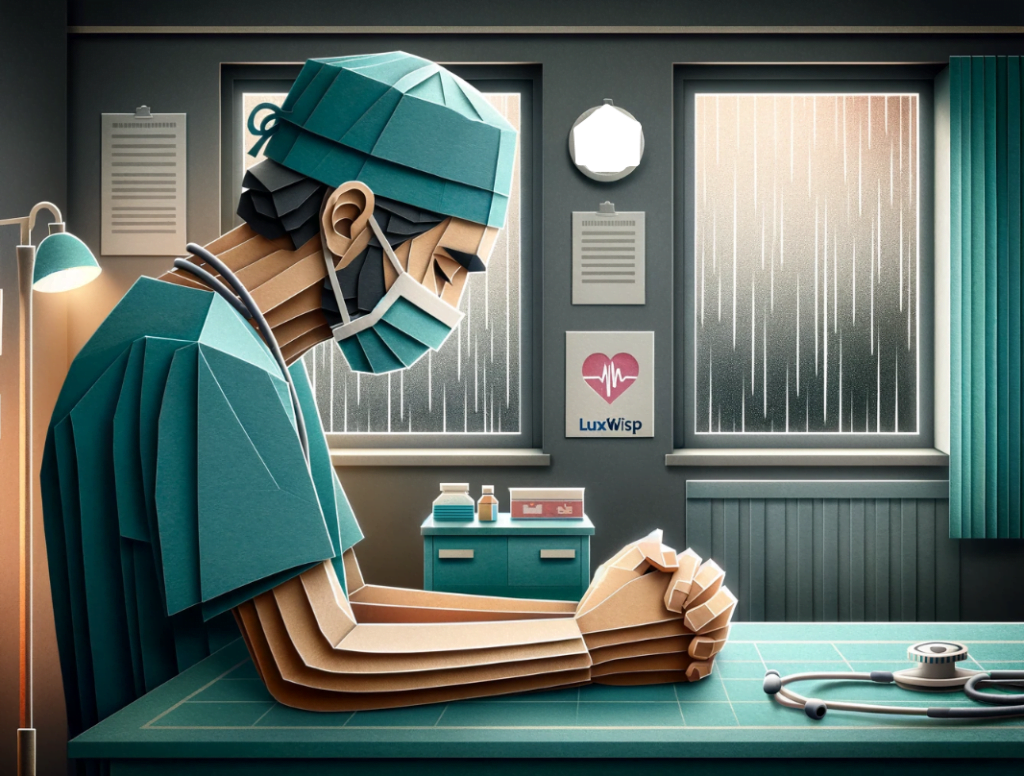
Cardiothoracic surgery is synonymous with a high-pressure environment and demanding lifestyle. Often, this leads to a stressful work-life balance. The impact of long, intense operations and potential complications can take an emotional toll on surgeons.
However, the field also offers the opportunity to save lives and develop resilience in dealing with the challenges of critical patient care.
Stressful Work-Life Balance
Navigating the high-pressure environment and demanding lifestyle of cardiothoracic surgery presents significant challenges for surgeons. The relentless nature of the work and the constantly high-stakes environment can take a toll on their work-life balance, leading to emotional and physical exhaustion. It’s a profession that demands sacrifices and presents unique stressors, including:
- Prolonged periods away from family and loved ones
- Constant pressure to make life-or-death decisions
- Limited time for personal hobbies and interests
- Difficulty in maintaining mental and emotional well-being
These factors contribute to a demanding lifestyle that can often lead to burnout and strained personal relationships. The toll on their work-life balance is a reality that cardiothoracic surgeons must navigate daily.
Life-Saving Impact
The life-saving impact of cardiothoracic surgery is undeniably significant, driven by the high-pressure environment and demanding lifestyle that requires unwavering dedication and expertise.
Cardiothoracic surgeons have the unique opportunity to perform complex procedures that directly contribute to the longer and healthier lives of their patients. The high-pressure environment of the operating room demands precise decision-making and technical skill, as the outcomes of these surgeries are often life-or-death.
Additionally, the demanding lifestyle, characterized by long hours and on-call responsibilities, underscores the unwavering commitment required in this field. Despite the challenges, the ability to save lives and contribute to medical advancements brings a deep sense of fulfillment and purpose to cardiothoracic surgeons, making the high-pressure environment and demanding lifestyle ultimately rewarding.
Emotional Toll and Resilience
In the high-pressure environment and demanding lifestyle of cardiothoracic surgery, surgeons must cultivate emotional resilience to effectively manage the challenges inherent in their work. This resilience is crucial for maintaining mental well-being and providing the best care for patients.
The emotional toll and resilience in this field involve:
- Delivering devastating news to patients and their families.
- Coping with the stress of long and complex surgeries.
- Balancing the demands of work with personal life.
- Navigating high-stress situations and potential complications with fortitude.
These aspects of emotional toll and resilience highlight the intense nature of cardiothoracic surgery and the need for surgeons to develop coping strategies and self-care practices to maintain their well-being.
Emotional Challenges and Malpractice Risks
Cardiothoracic surgeons frequently encounter emotional challenges and malpractice risks due to the nature of their high-pressure, invasive procedures and the demanding nature of their profession. The emotional toll of delivering bad news to patients and their families, along with the stress of performing invasive surgeries, contributes to the emotional challenges faced by these surgeons. Additionally, the demanding nature of the profession, including long hours and high-stress work, can lead to emotional burnout. On the other hand, cardiothoracic surgeons also face significant malpractice risks, with a 60% chance of experiencing a malpractice claim in their career. The complex and high-risk nature of surgeries, as well as the potential for dealing with challenging patients, expose these surgeons to legal risks and malpractice claims.
| Emotional Challenges | Malpractice Risks |
|---|---|
| Delivering bad news to | High chance of facing |
| patients and families | malpractice claims |
| Stress of performing | Complex and high-risk |
| invasive surgeries | surgeries |
| Potential for emotional | Dealing with challenging |
| burnout | patients |
Frequently Asked Questions
What Risks and Challenges Are Unique to Heart and Lung Surgery?
Heart and lung surgeries involve specific risks like delicate procedures, long operation times, and critical post-op care. This demands exceptional precision, stamina, and rapid decision-making from cardiothoracic surgeons.
How Does Regularly Facing Life-and-Death Situations Affect Cardiothoracic Surgeons Mentally?
Regular exposure to life-and-death situations impacts cardiothoracic surgeons’ mental health, leading to high stress, potential burnout, and challenges in maintaining work-life balance.
What Common Malpractice Risks Do Cardiothoracic Surgeons Face?
Cardiothoracic surgeons face malpractice risks due to complex procedures and new technologies. These necessitate ongoing learning, accuracy, and a focus on patient safety to maintain high care standards and reduce legal issues.
What Opportunities for International Collaboration Are Unique to Cardiothoracic Surgery?
Cardiothoracic surgery offers unique international collaboration opportunities, differing from other fields by providing diverse healthcare system experiences and global impact potentials.
How Do Cardiothoracic Surgeons Manage Work Pressure and Personal Life?
Cardiothoracic surgeons manage work pressure and personal life by practicing effective time management, stress relief, and prioritizing work-life balance. This involves building resilience and maintaining a healthy mindset.

